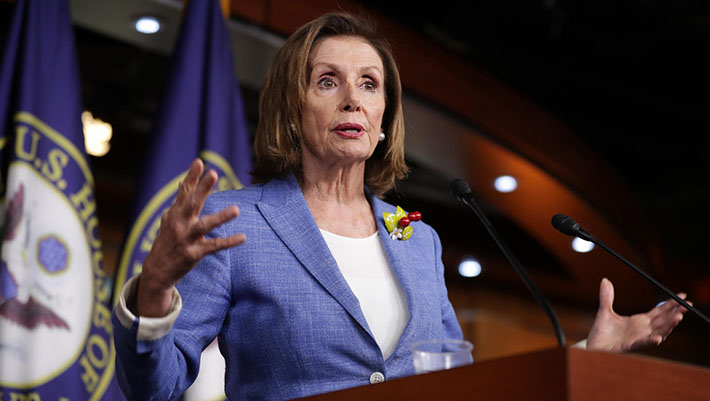(CNN) — House Speaker Nancy Pelosi wants to give the federal government the ability to negotiate and cap prices on hundreds of drugs.
The speaker unveiled her long-awaited plan to lower drug prices on Thursday, seeking to show how Democrats would address a major health care concern of Americans ahead of the 2020 election.
“The burden of out-of-control prescriptions is an issue that touches every family in America,” Pelosi said.
Controlling the cost of drugs is a major priority for both parties in Congress, as well as President Donald Trump. They have all promised to take action, but little has been accomplished so far.
Pelosi’s proposal would empower the Health & Human Services secretary to negotiate annually for the best prices on at least 25 of the most costly brand-name drugs without generic or lower-priced alternatives and up to 250 medications, including insulin. The plan would impact drug prices not just for Medicare enrollees but for all Americans.
It also calls for:
- Setting a maximum price on negotiated drugs of 1.2 times the average price in six developed countries, including Canada and the United Kingdom.
- Slapping penalties on drug makers who refuse to participate.
- Forcing them to pay rebates if they raise prices more than the inflation rate.
- Implementing a $2,000 cap on out-of-pocket costs for beneficiaries in Medicare Part D drug plans.
- Reducing the amount the federal government pays in Part D and increasing the costs borne by insurers and drug manufacturers.
The plan is expected to produce significant government savings, Pelosi said. Lawmakers will determine whether those funds could be put into expanding coverage in Medicare to areas such as hearing, vision or dental benefits or into lowering the price of additional drugs through negotiation.
Although the President has also flirted with pegging the price of some drugs to their cost in other developed countries, it remains to be seen if he will back Pelosi’s proposal, but he signaled support via Twitter, noting “It’s great to see Speaker Pelosi’s bill today. Let’s get it done in a bipartisan way!”
The speaker said she is optimistic that Democrats can work with the White House on this issue.
“Yes, we do hope to have White House buy in because that seems to be the root to getting any votes in the United States Senate,” Pelosi said.
But she was facing pushback among progressives in her own party on Thursday. She has been meeting with several caucuses this week to discuss her proposal.
The Congressional Progressive Caucus has several concerns about the plan, including the number of drugs subject to negotiation annually, said Rep. Mark Pocan of Wisconsin.
“Back home … they want to know if they drug they use, they’re going to save money on,” he said.
Also at issue is how the bill addresses the high launch prices of some new drugs and whether the non-compliance penalty — a fee starting at 65% of gross sales of the drug and increasing quarterly until it hits 95% — is strong enough.
The caucus, however, is pleased that the speaker is backing negotiation, rather than arbitration, and that the plan would cover all Americans, not just those on Medicare, Pocan said.
The Energy & Commerce Committee’s health subcommittee is set to hold a hearing on the legislation next Wednesday. Democratic leaders said they hope to have a bill to bring for a vote on the House floor in October.
However, it is not likely to get far in the Senate since Republicans have long opposed allowing the government to negotiate drug prices.
Already, Republican Sen. Chuck Grassley of Iowa, who is trying to convince members of his party to support his plan to lower drug costs in Medicare, has come out against Pelosi’s proposals, a draft of which has circulated over the past week. His office last week circulated interviews he did in with various media outlets in which he described his proposals as moderate.
House Minority Leader Kevin McCarthy said that Democratic leadership’s new drug pricing plan is “just more socialism.”
“The result will be less choice, which means less hope for Americans who are sick,” McCarthy said, noting the full text of the bill has not been made available.
The main drug industry lobbying group also lashed out at the speaker’s “radical plan,” warning it would end the system that has made the US a leader in developing life-saving treatments.
“It would fundamentally restructure how patients access medicines by giving the federal government unprecedented, sweeping authority to set medicine prices in public and private markets while importing price controls from other countries that restrict access to innovative medicines,” said Stephen Ubl, chief executive of PhRMA.
The-CNN-Wire
™ & © 2019 Cable News Network, Inc., a Time Warner Company. All rights reserved.
















